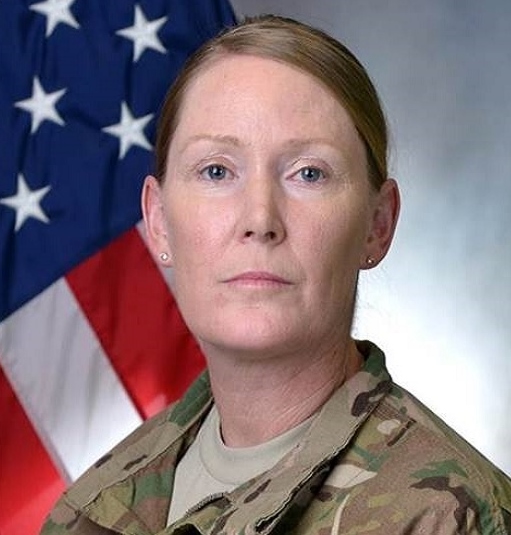SF Career Field Milestone
By CMSgt Tamala Hartz

This summer we are acknowledging a milestone for our career field. It has been 20 years since the former Law Enforcement, Security Specialist and Combat Arms Training and Maintenance career fields merged into what we now know as the Security Forces career field. This was a seismic shift in the way we performed our mission and deserves far more recognition than I can give it here. The magnitude of the merger has been felt every day for those 20 years. It is also interesting to note that every Defender who served during the merger in 1997 is either retired or eligible to retire. As such, this marks the beginning of the end of an era. I do not think it is important to bore you with the logistical and financial benefits of the merger. Rather, I would like to focus on the nuance, the familial mindset, and the long and short term benefits.
In many ways we ceased to be cousins in 1997 and became brothers and sisters instead. We joined together and began a period of shared experiences, capabilities, and mission focus. Gone were the inter-AFSC rivalries, the AFSC-centric and sometimes parochial management approaches, the competition for resources, the different promotion opportunities and cut-offs, and ceilings on advancement for Combat Arms and MWD Handlers. We stopped being LE, Security, CATM or Handlers, and became DEFENDERS! Certainly we still had some Defenders who performed law enforcement or security centric duties, and we still have Combat Arms instructors and MWD Handlers today. But instead of over-specialized and stove piped capability sets that had to be borrowed from time-to-time, we began to be a shared collective with broadened capabilities and perspective. The common refrains of the past such as “I just want to be a cop” and “You are just a security troop” gave way to “I am not just anything”. We also formed specialized units called Contingency Response Groups which captured all our capabilities into a unit and that expertise has since spread to the rest of the career field.
I often wonder what would have happened to us during Operations ENDURING FREEDOM and IRAQI FREEDOM had we not transitioned. How could a Law Enforcement Specialist with minimal combat skills training hope to survive in the asymmetric combat environment? How could we have folded a Combat Arms Instructor into a cohesive squad and send him or her outside the wire? How would our over-specialized approach have served our sister services in Iraq and Afghanistan when they needed us most? I believe we would have still accomplished the mission because that is who we are, but the cost would have been greater than it has been.
In case you have not guessed, I am a fan of the merger. I think it was the right thing to do and it happened at precisely the right time. But this is not a Hollywood love story and I am not in the habit of wearing rose-colored glasses. The transition was painful, comfort levels were challenged in ways few of us could have imagined. Even now I field occasional questions about whether we should separate the career fields again. Interestingly enough, many of those questions come from Defenders who were not serving prior to 1997, some were not even born yet. No doubt they have been told by the Security Police what it used to be like, or have experienced some perceived limitation brought on by the merger. From my experience I can tell you we have temporarily misplaced some specialized skill-sets from time-to-time. I use the word “misplaced” instead of “lost” because no problem has arisen that cannot be solved by training our Defenders. It also took a few years to break the ceiling on promotions for our career Combat Arms and MWD Handlers. Some promotion board scores suffered despite more opportunities because of an understandable lack of breadth of experience. These issues and others are to be expected when you transition from narrower skill-sets to a more broadened approach to mission accomplishment. However, these challenges pale in comparison to the benefits.
Our leaders before the merger were first class to be sure. Security Police senior leaders, led foremost by Brig Gen (Ret) Richard Coleman had the foresight to see that we could be even better and increase our operational effectiveness. These leaders had a vision of how skilled, capable and talented we could become as a collective rather than specialists. I like to think we have all benefited from their leadership and foresight and that we have a shared legacy they can be proud of creating.
I have not even touched on how the merger has changed and enhanced the perception of Security Forces by senior Air Force leaders and the joint community, or how that enhancement has benefited us in the hallways here in the Pentagon, at the bases we defend and in the combat zones across the globe. It is sufficient to say it has made a big difference in our favor.
I will close by reminding our Commanders and Chiefs that we have an opportunity this summer to come together to continue the evolutionary and revolutionary process begun in 1947 and redirected in 1997. Brig Gen Tullos will host a Worldwide Security Forces Conference at Andrews AFB in August. This will be the first Worldwide Conference since 2009 and will be an excellent chance to set the course for another 20 years or more as Defenders. I look forward to seeing you all there.
CMSgt Tammy Hartz
P.S. By the way, in case you were wondering, I was a Security troop.